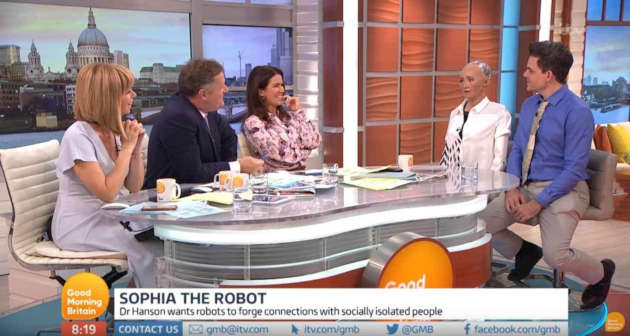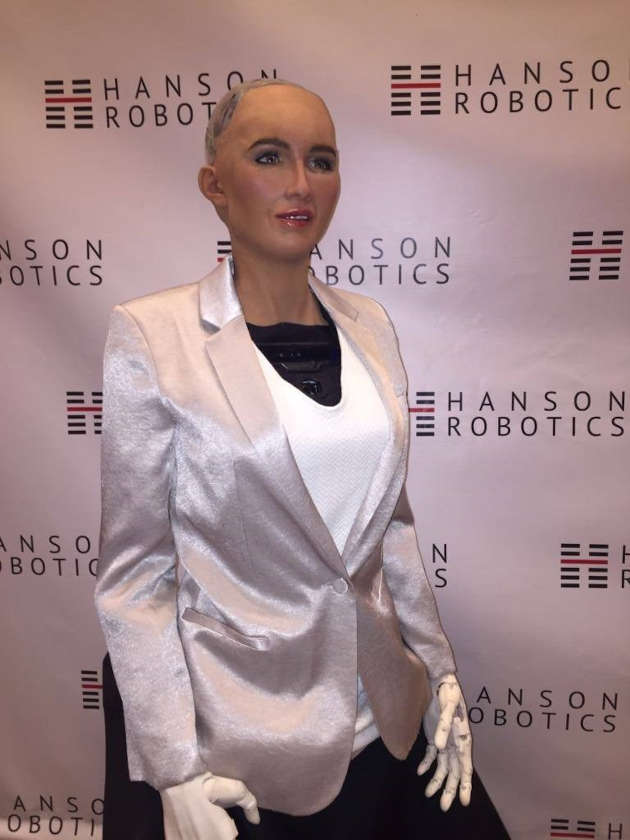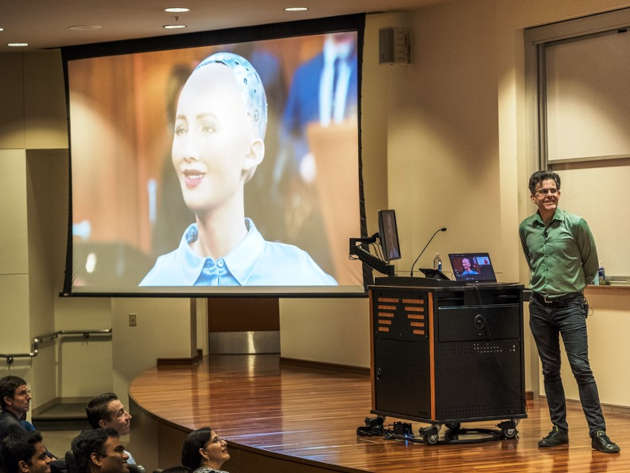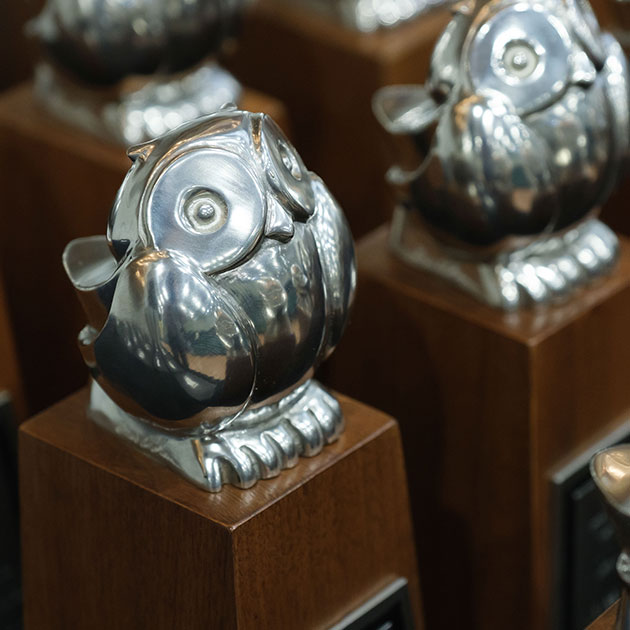
Alumnus Integrates Arts, Engineering, Entrepreneurship to Create World’s Most Intriguing Robot
Hanson Robotics CEO Melds Different Educational Disciplines Into Innovative Startup
In today’s Shark Tank nation, where entrepreneurship has been popularized by reality TV, having a PhD in arts and humanities might not seem like money (and time) well spent.
Think again.
Dallas native David F. Hanson, Jr., returned to his home turf at The University of Texas at Dallas earlier this year, where he completed his Arts and Humanities doctorate in 2007. Hanson is best known as the creator of Sophia, a life-like robot that has its own Facebook page and Wikipedia entry and a growing number of speaking engagements, like an appearance on The Tonight Show Starring Jimmy Fallon.
In his almost two-hour lecture at Jindal School about “bringing robots to life,” Hanson recalled his years at Walt Disney Company, where he was a sculptor and materials researcher in the Disney Imagineering Lab. He spoke of his eclectic interests, which started in high school, and included drawing and science fiction, and he touched briefly on working with engineers and microprocessors in all sorts of projects.

Hanson holds a Bachelor of Fine Arts from the Rhode Island School of Design in film, animation, and video, and his PhD from UT Dallas is in interactive arts and engineering. In 1995, as part of an independent-study project on out-of-body experiences, he built a humanoid head in his own likeness, remotely operated.
Now CEO of Hanson Robotics in Hong Kong, Hanson is exploring the edges of humanoid robots, artificial intelligence and materials design (the skin on the company’s robots was specifically created by Hanson to mimic real skin).
“Trying to get students to see outside of their major, their specific discipline, their usual approach to thinking and problem-solving is exactly what we do in our program,” says Bryan Chambers, who organized Hanson’s visit to UT Dallas. Chambers, director of the UT Dallas Blackstone LaunchPad, helps nurture student and alumni entrepreneurial endeavors and sees first-hand what talents help innovators make it to the ranks of “successful” innovators.
“Although it’s not easy to do, participating in programs like the UT Dallas CometX accelerator or attending programs of our student-led E-Club will help students master the idea of working outside their discipline,” Chambers says.

At UT Dallas earlier this year, Hanson explained the evolution of robots and the associated risks of creating artificial intelligence technology that could surpass human intelligence. He also offered a plan to reduce those risks. It involved creating super-intelligent but benevolent beings with whom humans can relate.
Dennis M. Kratz, PhD, dean of UT Dallas School of Arts and Humanities, says Hanson represents the ideal of how students should be educated in the 21st century. “David does art, technology, science — all wrapped in the humanities,” he says.





